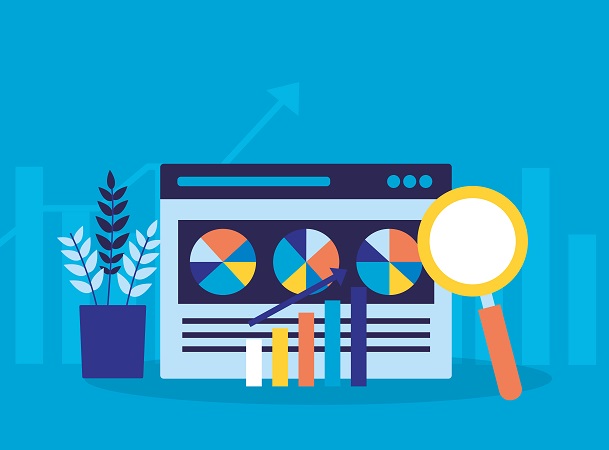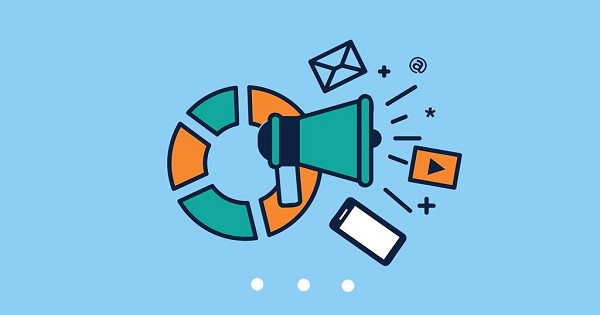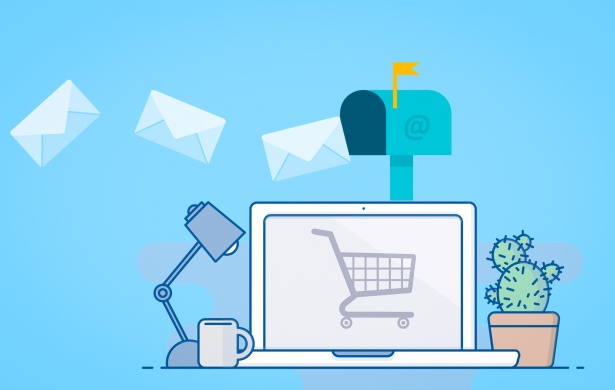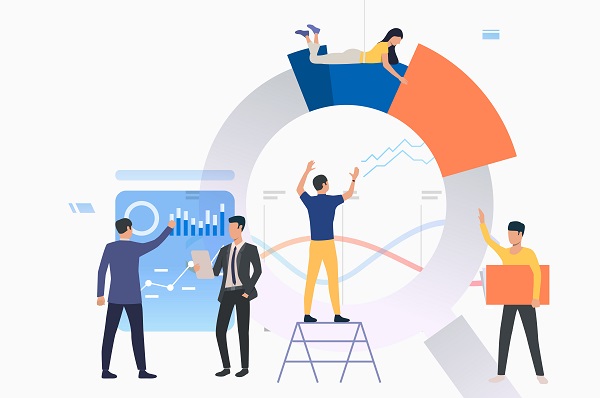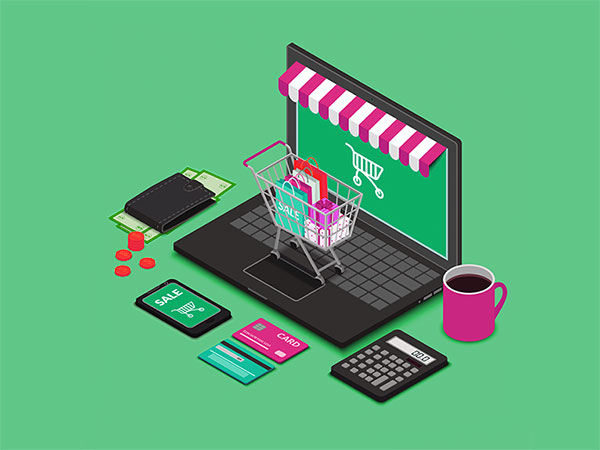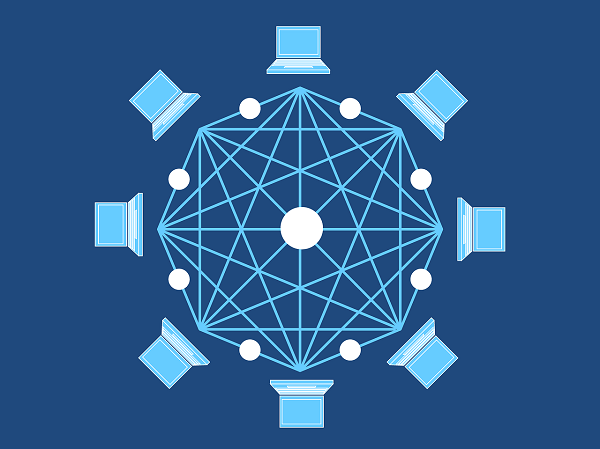Conducting a B2B sales process without a defined lead generation strategy is a lot like celebrating Halloween without the pumpkin and the candy — it’s an imperative!
While outbound prospecting and marketing techniques have proven to be effective, combining it with an inbound lead generation strategy is the formula to generate targeted leads and ensuring a high volume of conversions. Relying on historical data and predictive analytics for the formulation of a lead generation strategy gives you an additional business advantage.
Modern marketing automation tools have made it possible to have all the data a business would possibly need in one place. This data comes in great amounts and in various formats — emails, call records, notes from sales agents, website analytics data, social media interaction data, and a few other sources.
How can data help you create a dependable B2B lead generation strategy?
As business data numbers continue to explode globally, data science is going on an evolutionary journey of its own. A growing number of companies are using their combined power to get more analytical throughput and high-impact insights out of their data.
No lead generation software can substitute a solid data-backed strategy. A study of the uses of Big Data in B2B Sales can help guide a better B2B lead generation process.
Big data for an enriched prospecting process
One of the most common complaints of B2B sales reps is leaving voicemail messages that they never get a reply to. A content marketing strategy is a rewarding inbound marketing strategy that results in the generation of leads that are further along in the buyer journey. Having warm leads flowing through your marketing funnel is more effective than cold calling and results in the generation of predictable revenue for your business.
A combination of the inbound efforts with data-driven insights from predictive analytics software to extract accurate contacts of high-level company executives quickly has the potential to overhaul the lead generation process. You can rely on B2B predictive analysis software to crunch data from various sources and get a higher number of more relevant leads.
It can use publicly available company records, internally captured company data, social networking sites, and even data from third-party supplementary companies. The time saved in letting a software scour all these sources electronically alone would justify its benefit. The data mining software can mine connections and analyze them to find similarities and extract a higher number of relevant leads.
Big data for a fortified lead scoring and prioritization process
The Sales team often has to do additional research because the marketing team often passes leads to them who may not necessarily be ready to buy now. Whether you are a large business enterprise or an upcoming startup, choosing CRM software that helps you make data-driven decisions helps streamline this process for you.
Modern CRM and marketing automation tools use lead scoring to solve this problem. However, there is no consideration of what the lead does outside your website — a scoring blindspot.
Prospects generate a wide variety of social activity data by way of who they interact with, what groups they follow, and what types of posts they tend to engage with the most. You cannot feed this unstructured data directly into a marketing automation tool to update your lead scores.
This is where big data comes to the rescue.
A marketing automation tool based on Big Data can create a social score based on the professional information they collect from the social profiles of your prospects. This social score helps keep your lead score up-to-date. For example, if a prospect has left that position, the lead score falls significantly.
Moreover, this score indicates how closely the prospect matches your ideal buyer profile. For example, if a lead has interacted with several on-demand app development experts, their lead score for an on-demand solution provider increases. These additional insights make the salesperson less dependent on a static quantity like the one-dimensional lead score.
Big Data to overcome B2B sales objections
Everyone, including your competitors, is engaged in various content marketing initiatives at varying levels. Business stakeholders too, prefer to research well about the market with specific insights before they go into buying mode. A combined result of this is a highly-informed B2B sales prospect. Their questions would also be different than the kind of questions an agent is accustomed to answering.
The solution to this problem is to go at it with a more wholesome approach.
Predictive analytics software will mine the data that helps customize each of your interactions with them. You can use the insights gathered by the mining approach to further personalize the pitches and customize the demos that you present to them. This lets you use emotions to create more impactful pitches, presentations, and products.
Additionally, the marketing team can use this data to create more targeted blogs, highly-personalized email copy, and optimized landing pages. This strategically nurtures the B2B leads who are early in the sales cycle and may not be ready to buy immediately.
Personalization is at the core of any successful marketing strategy. It helps make your content more relatable to the target audience and helps them focus on the actual benefits of your solution more clearly.
Secondly, you can employ Account-Based Marketing (ABM) techniques to help address the concerns more members of the core decision-making team. By using Big Data, you can learn the buying patterns, preferences, and priorities of each company in your prospect’s niche. Use this to circumvent the objections by approaching the decision-makers at the right time when they can’t delay any further and must absolutely make the purchase.
Detailed information will help salespeople target a lead at the right stage of the sales pipeline and increase chances for conversion.
Big Data for an omnichannel B2B journey
B2C shopping experiences have been shaping B2B customer expectations for several years. According to a McKinsey Insights article, an average B2B customer uses six different channels as they make a purchase decision.
However, as companies struggle to keep up with customer experience demands over online media, they create disjointed experiences. Big Data can help analyze these experiences so you can streamline them and provide unified customer journeys across multiple channels.
Big Data is perfect for analyzing patterns across multiple diverse channels. By following consistent attribution practices, you can find where your customers are coming from. Use this data for better segmentation and targeting across Marketing and Sales activities.
You can combine these patterns with business insights to analyze the strengths and weaknesses of each channel. And optimize them to get the most return on your investment.
Can big data and B2B predictive analytics help you earn more revenue per quarter?
Big Data can help you take advantage of all the data you have collected since your first sales interaction. Including usage and feedback data collected after the sale.
Such a system can accurately segment your customers based on their shared traits and buying habits. Using Cohort Analysis, it can predict who is likely to buy what and when.
The next step is Uplift Modeling which correlates certain marketing actions with an increased likelihood of purchase. This lets you know what you need to do to increase the probability of a purchase transaction.
Using a market basket analysis (MBA) technique, you can also find a combination of products or services that your customers are likely to buy together.
Thus, Big Data finds more relevant and effective leads for you to set up for predictable revenue.
Final words
Big Data and Predictive Analytics are perfectly positioned to drive the digital practices of your business into the future with a revenue-focused approach. A data-focused attitude can help create a more reliable, potent, and powerful B2B lead generation process.
Beyond lead generation, Big Data and Predictive Analytics let you leverage your customer knowledge. And subsequently provide more accurate predictions about the customer’s sales needs and behaviors. The same data and insights remain useful throughout the buying cycle and even after the lead becomes a customer.



